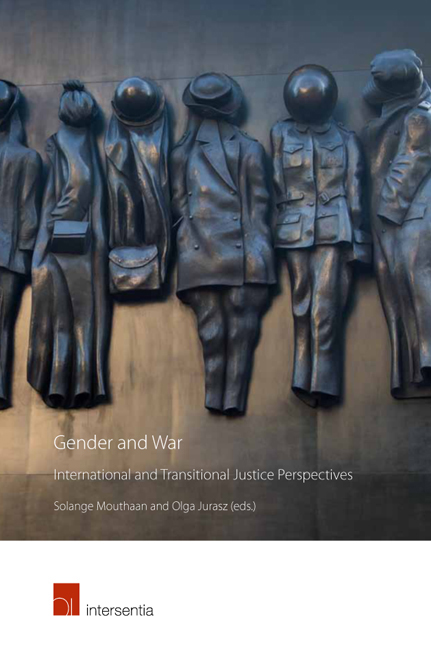Book contents
- Frontmatter
- Contents
- List of Cases
- List of Abbreviations
- List of Contributors
- Introduction
- PART I WOMEN'S INVOLVEMENT IN ARMED CONFLICT
- PART II MEN AND CHILDREN'S EXPERIENCES OF ARMED CONFLICT
- PART III GENDERED EXPERIENCES OF INTERNATIONAL CRIMINAL JUSTICE
- PART IV GENDERED EXPERIENCES OF TRANSITIONAL JUSTICE
- Children in Transitional Justice Processes: Still Sidelined?
- Conflict-Related Sexual Violence in Kosovo: Gendering Justice Through Transformative Reparations
- Staying the Course: A Call for Sustained Support of Accountability for Conflict-Related Sexual Violence in Bosnia and Herzegovina
- PART V CONCLUSIONS
- About the Editors
Staying the Course: A Call for Sustained Support of Accountability for Conflict-Related Sexual Violence in Bosnia and Herzegovina
from PART IV - GENDERED EXPERIENCES OF TRANSITIONAL JUSTICE
Published online by Cambridge University Press: 30 March 2019
- Frontmatter
- Contents
- List of Cases
- List of Abbreviations
- List of Contributors
- Introduction
- PART I WOMEN'S INVOLVEMENT IN ARMED CONFLICT
- PART II MEN AND CHILDREN'S EXPERIENCES OF ARMED CONFLICT
- PART III GENDERED EXPERIENCES OF INTERNATIONAL CRIMINAL JUSTICE
- PART IV GENDERED EXPERIENCES OF TRANSITIONAL JUSTICE
- Children in Transitional Justice Processes: Still Sidelined?
- Conflict-Related Sexual Violence in Kosovo: Gendering Justice Through Transformative Reparations
- Staying the Course: A Call for Sustained Support of Accountability for Conflict-Related Sexual Violence in Bosnia and Herzegovina
- PART V CONCLUSIONS
- About the Editors
Summary
INTRODUCTION
An estimated 20,000 girls and women and an unknown number of men and boys were victims of sexual violence during the war in the former Yugoslavia. This sexual violence took many forms and occurred in many different contexts: in victims ‘own homes when soldiers came to the door; in perpetrators’ homes, with victims sometimes being held for months as sexual slaves; and in detention centres and police stations in the context of interrogations and imprisonment. Since 1993, the International Criminal Tribunal for the former Yugoslavia (ICTY) has prosecuted some of these violations, along with other serious war crimes, crimes against humanity and acts of genocide. Yet only a fraction of these crimes – including the widespread sexual and gender-based violence (SGV) that occurred during the war – have been addressed by the ICTY. In light of the tribunal's mandate to complete its work within a limited timeframe, since 2003, the ICTY has focused on the prosecution ‘of the most senior leaders suspected of being most responsible for crimes within the ICTY's jurisdiction and transferr[ed] cases involving those who may not bear this level of responsibility to competent national jurisdictions‘, meaning the vast majority of serious crimes that occurred during the war remain to be addressed by domestic criminal justice systems in the former Yugoslavia, including in Bosnia and Herzegovina (BiH). Although an internationally supported special War Crimes Section was established over a decade ago within the national judicial system of the BiH to deal with such cases, a significant backlog remains, in particular with respect to cases involving SGV. This chapter explores the issues faced by justice system actors trying these cases. While some of the challenges relate to evidentiary difficulties, others stem from the withdrawal of international support of the War Crimes Section, rendering accountability efforts vulnerable to attack by domestic actors opposed to such efforts.
- Type
- Chapter
- Information
- Gender and WarInternational and Transitional Justice Perspectives, pp. 311 - 352Publisher: IntersentiaPrint publication year: 2019



